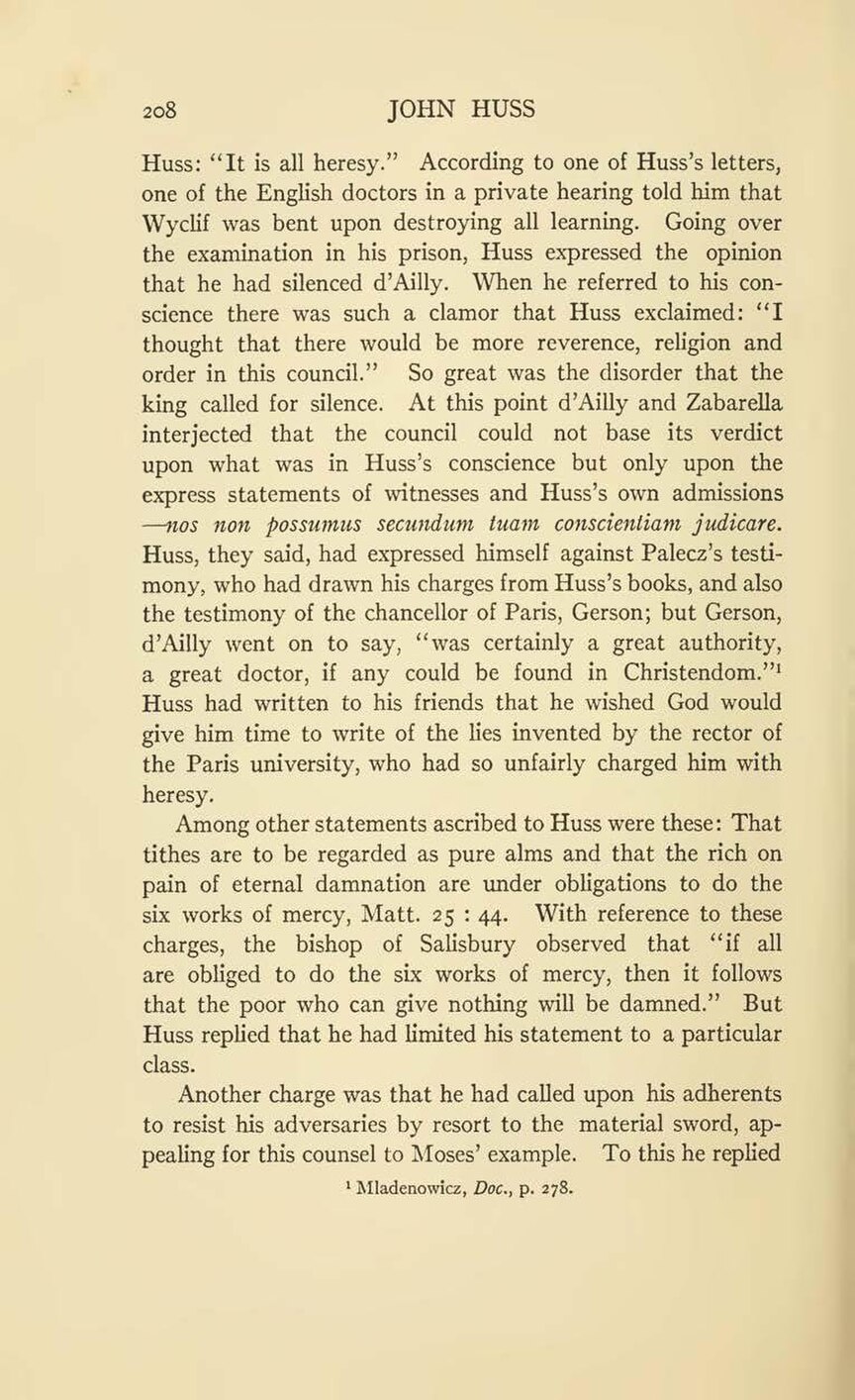Huss: “It is all heresy,” According to one of Huss’s letters, one of the English doctors in a private hearing told him that Wyclif was bent upon destroying all learning. Going over the examination in his prison, Huss expressed the opinion that he had silenced d’Ailly. When he referred to his conscience there was such a clamor that Huss exclaimed: “I thought that there would be more reverence, religion and order in this council.” So great was the disorder that the king called for silence. At this point d’Ailly and Zabarella interjected that the council could not base its verdict upon what was in Huss’s conscience but only upon the express statements of witnesses and Huss’s own admissions—nos non possumus secundum tuam conscientiam judicare. Huss, they said, had expressed himself against Palecz’s testimony, who had drawn his charges from Huss’s books, and also the testimony of the chancellor of Paris, Gerson; but Gerson, d’Ailly went on to say, “was certainly a great authority, a great doctor, if any could be found in Christendom.”[1] Huss had written to his friends that he wished God would give him time to write of the lies invented by the rector of the Paris university, who had so unfairly charged him with heresy.
Among other statements ascribed to Huss were these: That tithes are to be regarded as pure alms and that the rich on pain of eternal damnation are under obligations to do the six works of mercy, Matt. 25: 44. With reference to these charges, the bishop of Salisbury observed that “if all are obliged to do the six works of mercy, then it follows that the poor who can give nothing will be damned.” But Huss replied that he had limited his statement to a particular class.
Another charge was that he had called upon his adherents to resist his adversaries by resort to the material sword, appealing for this counsel to Moses’ example. To this he replied
- ↑ Mladenowicz, Doc., p. 278.
